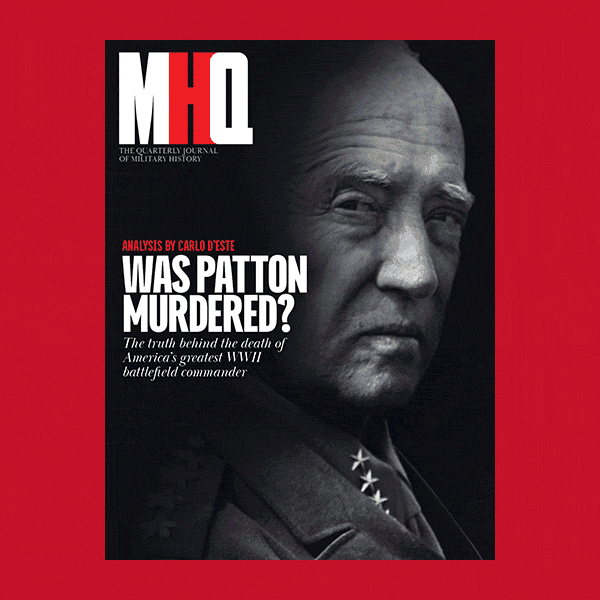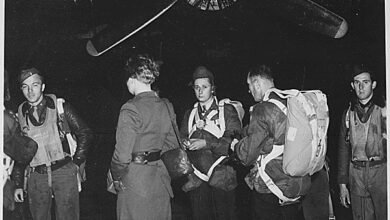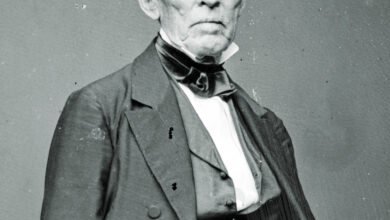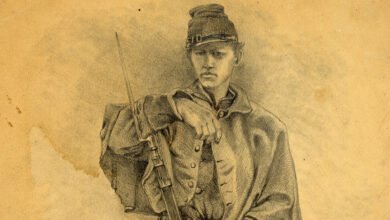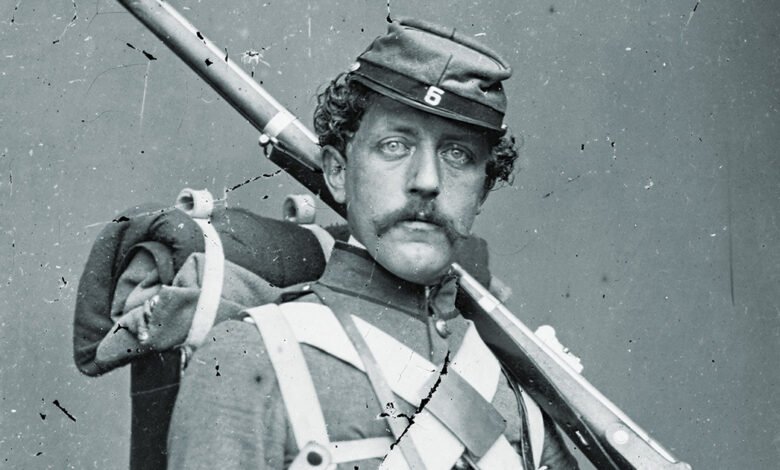
The lyrics to America’s most famous marching song of the Civil War were written when their author was half-asleep and first sold to a magazine for the whopping sum of five dollars. Julia Ward Howe had been visiting Washington, D.C. in November 1861 with her husband Samuel when she witnessed Union soldiers singing a boisterous tune known as “John Brown’s Body,” then popular among abolitionists. A poet and staunch abolitionist herself, Howe wished she could write new lyrics to this rather strange ditty that the soldiers were so fond of singing. Yet nothing immediately came to mind.
As in most moments of creative genius, the spark of brilliance happened when she was least expecting it. A groggy Howe had woken up too early one morning and was lying in bed thinking about nothing in particular when suddenly “the wished-for lines were arranging themselves in my brain,” she later wrote. Jumping out of bed, “saying to myself, I shall lose this if I don’t write it down immediately,” Howe scribbled down her lyrics and then went back to sleep. She could hardly have expected when she sold the poem to the Atlantic Monthly in 1862 that it would quite literally spread like wildfire and become the hands-down favorite marching song of all men who took up arms to fight for the Union.
Howe, a committed pacifist, was an unlikely military lyricist. Yet the words she came up with that bleary-eyed morning lit a fire in the hearts of all soldiers who heard it and excelled at getting troops riled up, such as:
I have seen Him in the watch-fires of a hundred circling camps; They have builded Him an altar in the evening dews and damps:
I can read His righteous sentence by the dim and flaring lamps: His day is marching on.
It is said that the song moved President Abraham Lincoln to tears, and it became known as the anthem of the Union cause. Howe’s fiery and moralistic lyrics proved enduringly popular, and consequently the song has been invoked by all types of movements and groups. Martin Luther King quoted one of its verses in his notable 1968 “I’ve Been to the Mountaintop” speech. Following his assassination only one day later, the song became an anthem of King’s church and of the Civil Rights movement.

